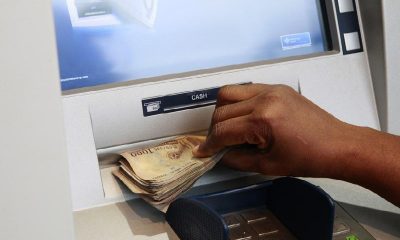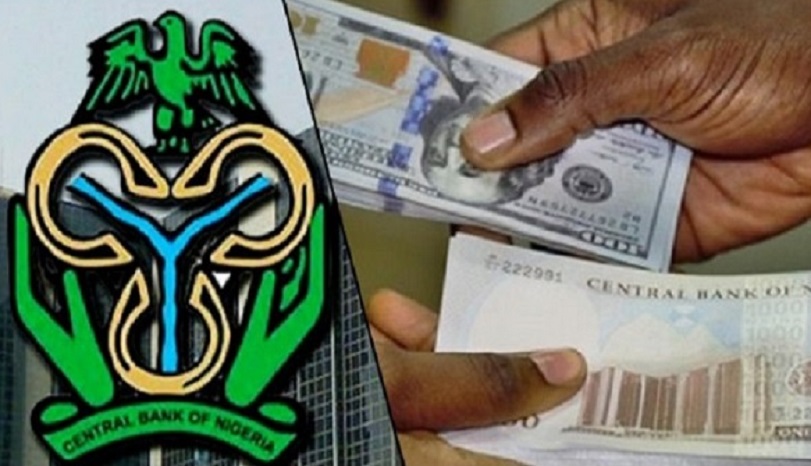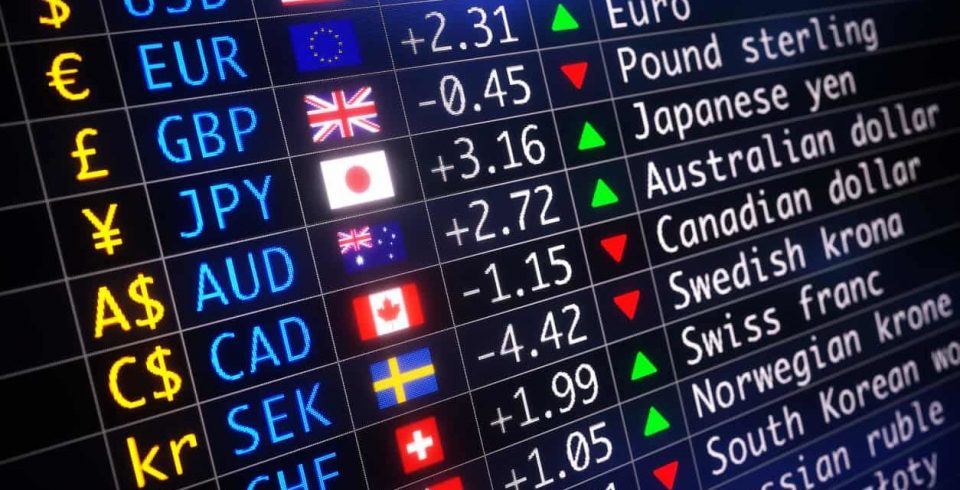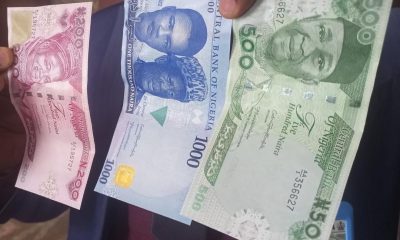Economy
All You Need to Know About Trading in Currency Market

Online trading of currencies is gaining momentum all around the world since the last two decades. Africa alone today has estimated approx. 1.3 million forex traders, South Africa and Nigeria are the leading countries with around 400,000 traders locally combined.
The currency market is a decentralized international financial market where buying, selling and exchange of global currencies among buyers and sellers take place.
In the currency market, the values of currencies are determined based on supply and demand, and it is the largest financial market with transactions crossing over $6.6 trillion per day.
The bulk of currency trading volume comes from trading between banks, institutions, governments and companies. But approximately 5.5% of trading volume constitutes of retail investors and this figure is growing.
The advancement in internet, electronic trading tech, the rise of low-cost brokerages and the availability of diverse trading platforms to African traders have caused online trading to gain popularity among retail investors in Africa, especially Nigeria and South Africa.
How does currency or Forex market work? What decides currency rates?
Currency trading is the buying, selling and exchange of currencies like Euro or the US Dollar or any other two currencies against one another; where you give one currency to get another.
If you have travelled abroad or ordered something online from a different country in another currency like EUR or USD, then it is likely you have made a forex transaction.
Currency trading always involves trading between a pair of currencies. In contrast to stock trading where you buy a company’s share, it involves taking a position on a currency pair.
For example, GBP/USD represents the value of how much US Dollars you can buy with one Pound. If you think that Pound’s value will rise, you buy GBP with dollars. If your prediction is right, you could make a profit. Similarly, you can trade any other currency available in the Forex Market.
FX or currency market works on a simple economic concept of demand and supply. For instance, if there are more buyers for the US dollars in the market, its value will appreciate and vice-versa.
The demand and supply are affected by global trade, geopolitical events, interest rates and financial news. These factors create volatility in the currency market which in turn creates an opportunity for traders to speculate on the movements of currency prices.
For example, if the US Federal Reserve announces a higher interest rate, then US dollars will appreciate and other weaker currencies will likely depreciate against it.
What differentiates FX from other financial markets is that it operates 24 hours in different time-zones. It means when the trading day ends in the US, it begins in Japan and Hong Kong. That’s why currency prices are constantly changing.
How are currencies traded?
Currencies are always traded in pairs like EUR/USD or GBP/EUR.
There are mainly four ways how institutions, companies and individuals trade in FX market: spot contracts, swaps, forward and options. Swaps account for roughly 50% of the total FX trade.
Forex Spot, Forward and Swap Contracts
Most actual trade or non-speculative trade of currencies between banks, corporations, the governments take place using contracts like spot, forward and swaps.
In the Spot FX, currencies are exchanged at the current market price or exchange rate. Spot trades are usually settled within 2 days of contract and the majority of currency trading takes place through swaps.
Swap, also known as a cross-currency swap, is an agreement between two parties to exchange two different currencies at a predetermined spot-rate over a period of time. Swaps are more common among financial institutions or governments. Global companies usually get into a currency swap mainly for securing cheaper debts.
The forward contract is similar to spot trading, except in this the currency exchange occurs in the future. A forward contract entails an agreed-upon exchange rate, volume and a specified maturity date. When the contract reaches it maturity date, the buyer has to pay the amount at the agreed-upon exchange rate. The buyer may incur losses if the current spot rate is lower than the pre-agreed rate.
Currency Derivatives
Currency derivatives are of two types options or futures. Currency derivatives are considered one of the best options to manage currency-risks. They are usually exchange-based futures and options contracts. These future-oriented currency contracts can be purchased at a predetermined price and date.
FX Options is a contract where a buyer obtains the right to buy foreign currencies from a seller at a specified rate and date. The buyer, however, is not obligated to buy it. Similar to insurance, the buyer just needs to pay the premium to buy an FX Option. FX Futures contract is similar in nature but parties are obligated to settle the contract.
Multinational corporations usually use FX Options to protect their investments from currency fluctuations.
Locally in Nigeria, the Nigerian Stock Exchange (NSE) is planning to introduce financial derivatives next year. Currently, LCSE offers trading in four asset classes including currencies (both local and foreign). In the rest of Africa, JSE offers currency derivatives on all major currencies against ZAR.
Currency CFDs
A contract for difference (CFD) is an agreement between the two parties (trader and broker) to exchange the difference in the price of an underlying asset at the end of the trade. The difference in price is calculated from the point when the contract opened to when it ended. In CFD trading, neither broker nor the investor owns any underlying asset.
Most retail forex traders trade forex online as CFDs with retail forex brokers. But there are no locally regulated forex brokers in Nigeria.
All the best forex brokers available in Nigeria are foreign brokers that offer CFDs on currency pairs. As online forex trading is still unregulated in Nigeria, traders must ensure they only trade with top-tier regulated brokers for safety of their funds & fair-dealing; like through brokers regulated by FCA or ASIC or CySEC.
How currency trading can be risky?
The Forex market is inherently risky. The risks range from market risks like extreme volatility to other risks like the use of high margin.
Here are some of the risks that you should watch out for:
Market volatility and unpredictability
The forex market can be highly unpredictable. The release of a new economic data or a new bilateral/regional trade deal can cause volatility in the Forex market.
Major currency pairs tend to remain relatively stable. But exotic currency pairs which have lower trading volumes can be very volatile.
Volatile currencies tend to move in any direction based on a market event or even without it in some cases. The unpredictable movement can cause huge losses.
Leverage and margin risk
The availability of high leverage is one of the reasons why currency trading is why so many traders get attracted to it.
Leverage can amplify a trader’s profit but at the same time, the unwise use can cause significant losses.
For example, in a 100:1 leverage factor, a trader could trade USD$10,000 with just $100 margin deposit. So, suppose a currency pair made a 1 pip loss that means loss of $1. If it changes to 50 pips loss than half of your margin money could be gone in seconds.
Counterparty or third-party risk
Risks related to counter-party or market maker or Broker, where they are not able to fulfil your contract or order due to credit risk or volatile market conditions is another major risk factor. And sometimes these counterparties also deal in malpractices.
There have been numerous instances in the past when people were fooled through Ponzi schemes & bad brokers. For the safety of your capital, one must always choose a broker that is regulated by multiple Tier I and Tier II regulators.
Other risks to know
There are other associated risks too with trading currencies including Country risk, Interest Rate Risk, Transaction Risk, Liquidity Risk etc. One must understand all these risks and try to mitigate them before trading.
Another major risk is of losing money. There is no denying that Forex trading is very risky. Roughly 60-70% of traders lose their capital due to different reasons. However, unwise use of leverage is considered one of the top reasons for trading-losses.
One can possibly mitigate some of these risks by adopting a sound trading plan, using leverage (max 1:10) and proper risk management.
Economy
LIRS Urges Taxpayers to File Annual Returns Ahead of Deadline

By Modupe Gbadeyanka
All individual taxpayers in Lagos State have been advised to file their annual tax returns ahead of the March 31 deadline.
This appeal was made by the Lagos State Internal Revenue Service (LIRS) in a statement issued by its Head of Corporate Communications, Mrs Monsurat Amasa-Oyelude.
The notice quoted the chairman of LIRS, Mr Ayodele Subair, as saying that timely filing remains both a constitutional and statutory obligation as well as a civic responsibility.
The statutory filing requirement applies to all taxable persons, including self-employed individuals, business owners, professionals, persons in the informal sector, and employees under the Pay-As-You-Earn (PAYE) scheme.
In accordance with Section 24(f) of the 1999 Constitution of the Federal Republic of Nigeria, Sections 13 &14(3) of the Nigeria Tax Administration Act 2025 (NTAA), every individual with taxable income is required to submit a true and correct return of total income from all sources for the preceding year (January 1 to December 31, 2025) within 90 days of the commencement of a new assessment year.
“Filing of annual tax returns is not optional. It is a legal requirement under the Nigeria Tax Administration Act 2025. We encourage all Lagos residents earning taxable income to file early and accurately.
“Early and accurate filing not only ensures full adherence with statutory requirements, but supports effective monitoring and forecasting, which are critical to Lagos State’s fiscal planning and long-term sustainability,” Mr Subair stated.
He further noted that failure to file returns by the statutory deadline attracts administrative penalties, interest, and other enforcement measures as prescribed by law.
To enhance convenience and efficiency, all individual tax returns must be submitted electronically via the LIRS eTax portal at https://etax.lirs.net. The platform enables taxpayers to register, file returns, upload supporting documents, and manage their tax profiles securely from anywhere.
In keeping with global best practices, Mr Subair reiterated that LIRS continues to prioritise digital tax administration and taxpayer support services. He affirmed that the LIRS eTax platform is secure and accessible worldwide. Taxpayers requiring assistance may visit any of the LIRS offices or other channels.
Economy
NNPC Targets 230% LPG Supply Surge to 5MTPA Under Gas Master Plan 2026

By Adedapo Adesanya
The Nigerian National Petroleum Company (NNPC) Limited has said the Gas Master Plan 2026 targets over 230 per cent scale-up of Liquefied Petroleum Gas (LPG) supply from 1.5 million tonnes per annum (MTPA) to 5 MTPA this year.
The Executive Vice President for Gas, Power and New Energy at NNPC, Mr Olalekan Ogunleye, unveiled the strategic direction of the NNPC Gas Master Plan 2026, outlining an aggressive expansion drive to position Nigeria as a regional and global gas powerhouse.
Mr Ogunleye delivered the keynote address at the 2026 Lagos Energy Week, organised by the Society of Petroleum Engineers (SPE), where he detailed plans to accelerate gas development, deepen infrastructure and significantly scale domestic supply.
According to him, the Gas Master Plan targets a scale-up of LPG or cooking gas supply from 1.5 MTPA to 5 MTPA, alongside expanded feedstock for Mini-LNG and Compressed Natural Gas (CNG) projects.
“The NNPC Gas Master Plan 2026 is a blueprint to unlock Nigeria’s vast gas potential and translate it into tangible economic value,” Mr Ogunleye said.
He added that the strategy would also drive exponential growth in Gas-Based Industries, GBIs, strengthening local manufacturing, fertiliser production and power generation.
“Our renewed focus is on turning abundant gas resources into inclusive economic growth and improved quality of life for Nigerians,” he stated.
Mr Ogunleye said the plan aligns with the Federal Government’s Decade of Gas initiative and the presidential production targets of achieving 10 billion cubic feet per day by 2027 and 12 BCF/D by 2030.
Industry leaders at the event, including executives from Chevron Corporation, Esso Exploration and Production Nigeria Limited, Midwestern Oil and Gas Company Limited, Abuja Gas Processing Company and Shell Nigeria Gas, commended the plan and praised Ogunleye’s leadership in driving implementation excellence.
The new blueprint signals NNPC’s determination to anchor Nigeria’s energy transition on gas, leveraging infrastructure expansion and domestic utilisation to consolidate the country’s status as Africa’s largest gas reserve holder.
Economy
Shettima Blames CBN’s FX Intervention for Naira Depreciation

By Adedapo Adesanya
Vice President Kashim Shettima has attributed the Naira’s recent depreciation to the intervention of the Central Bank of Nigeria (CBN) in the foreign exchange (FX) market, stating that the currency could have strengthened to around N1,000 per Dollar within weeks if the apex bank had allowed market forces to prevail.
The local currency has dropped over N8.37 on the Dollar in the last week, as it closed at N1,355.37/$1 on Tuesday at the Nigerian Autonomous Foreign Exchange Market (NAFEM), after it went on a spree late last month and into the early weeks of February.
However, speaking on Tuesday at the Progressive Governors’ Forum (PGF), Renewed Hope Ambassadors Strategic Summit in Abuja, the Nigerian VP said the intervention was to ensure stability.
“In fact, if not for the interventions by the Central Bank of Nigeria yesterday, the 1,000 Naira to a Dollar we are going to attain in weeks, not in months. But for the purpose of market stability, the CBN generously intervened yesterday.
“So, for some of my friends, especially one of our party leaders who takes delight in stockpiling dollars, it is a wake-up call,” the vice president said.
He was alluding to CBN buying US Dollars from the market to slow down the rapid rise of the Naira.
Latest information showed that last week, the apex bank bought about $189.80 million to reduce excess Dollar supply and control how fast the Naira was gaining value.
The move was aimed at preventing foreign portfolio investors from exiting Nigeria’s fixed-income market, as large-scale sell-offs could heighten demand for US Dollars, intensify capital flight, and exert further pressure on the exchange rate.
Amid this, speaking after the 304th meeting of the monetary policy committee (MPC) of the CBN on Tuesday, Governor of the central bank, Mr Yemi Cardoso, said Nigeria’s gross external reserves have risen to $50.45 billion, the highest level in 13 years.
This strengthens the country’s foreign exchange buffers, enhances the apex bank’s capacity to defend the Naira when needed, and boosts investor confidence in the stability of the Nigerian FX market.
-

 Feature/OPED6 years ago
Feature/OPED6 years agoDavos was Different this year
-
Travel/Tourism10 years ago
Lagos Seals Western Lodge Hotel In Ikorodu
-

 Showbiz3 years ago
Showbiz3 years agoEstranged Lover Releases Videos of Empress Njamah Bathing
-

 Banking8 years ago
Banking8 years agoSort Codes of GTBank Branches in Nigeria
-

 Economy3 years ago
Economy3 years agoSubsidy Removal: CNG at N130 Per Litre Cheaper Than Petrol—IPMAN
-

 Banking3 years ago
Banking3 years agoSort Codes of UBA Branches in Nigeria
-

 Banking3 years ago
Banking3 years agoFirst Bank Announces Planned Downtime
-

 Sports3 years ago
Sports3 years agoHighest Paid Nigerian Footballer – How Much Do Nigerian Footballers Earn





















